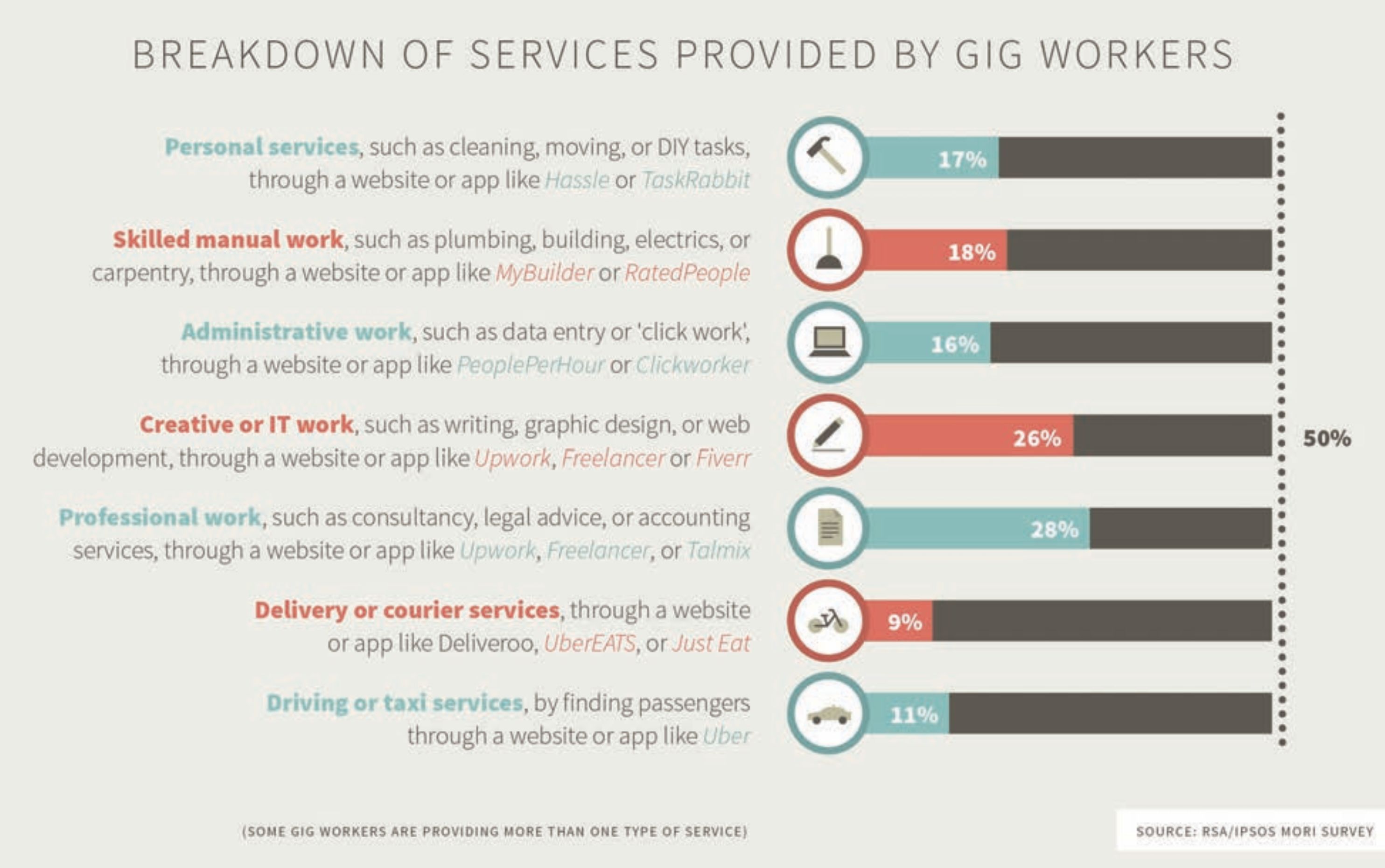Blog
The Gig Economy in 2018: Can temporary work play a role in your Talent Strategy?
12.01.18
The biggest debate surrounding workplace practices in recent times has been the fiery issue of the ‘gig economy’, culminating in multinational firms Uber and Deliveroo facing legal battles in the UK.
Curiously, despite similarities in their business models, the companies have received different verdicts; an employment tribunal declared Uber drivers should be regarded as employees - opening the door to paid annual leave and pension contributions, etc. - whereas the Central Arbitration Committee ruled Deliveroo are right in their assertion that riders should be classed as self-employed.
The respective cases are ongoing with extended rounds of appeal, but the disparity highlights the widespread confusion surrounding the whole topic of flexible work.
With that in mind, here’s our guide to the gig economy in 2018, outlining what employers should be aware of and how it’s possible to implement flexible, freelance work as part of a successful talent strategy that all stakeholders buy into.
Freedom or exploitation? The pros and cons of gig work
The notion of mastering your destiny and taking control of working life has its obvious attractions; you decide how much you want to work and when to clock-on, giving greater flexibility in planning shifts around other pursuits.
However, what critics of the gig model argue is that, in reality, many workers carry out regular shift patterns - effectively acting as employees - but without any security over their income.
The companies that rely on this casual workforce don’t have to meet national minimum wage guidelines or offer benefits packages, such as holidays and sick pay, because individual ‘gigs’ are completed at pre-agreed rates.
Some say corporations hold all the cards, profiting from eager workers without taking any risk. Conversely, of course, many who embrace this modern way of working say it’s empowered them to earn more than ever before, with scores of former black cab drivers much preferring the Uber model.
When times are good, it seems gig work can certainly be prosperous. However, when things go quiet, it’s easy to see why people might struggle, especially when there are no allowances for time off.
Furthermore, with employees now automatically enrolled into workplace pension schemes, self-employed gig workers are reportedly missing out on contributions worth up to £22,000. With an aging population, the long-term impact could have serious consequences down the road.
This leads to a school of thought that suggests some companies view casual workers as a means of cost-cutting, a legal loophole that removes financial burdens, such as making National Insurance contributions.
Additionally, some would say supporters of gig work are short-sighted; while it may be possible to earn comparatively more on a daily basis, there are no guarantees and zero long-term security.
It’s certainly a highly contentious issue, and with estimates suggesting there are anywhere between one and five million gig workers in the UK, the government urgently need to legislate to clarify the state of play. Indeed, a number of recommendations outlined in the Taylor review of modern working practices are expected to be implemented in 2018, expected to give gig workers extended rights.
The difference between gigging and freelancing
It’s not just minicab drivers and couriers that have embraced the world of gigging, as many creative professionals now use online marketplaces to pitch for projects. You can find a multitude of web designers, graphic designers, copywriters and SEO experts offering their services on a short-term basis, sometimes for the incredibly low fee of $5.

Source: Good Gigs: A fairer future for the UK’s gig economy
While this may seem attractive to canny business owners, there must be question marks over the quality of work, and even if it’s completed to a relatively high standard, you have to ask yourself whether you want to be associated with such frugality.
It’s all very well wanting to be financially prudent, but if that comes at the expense of others, it doesn’t bode well for your brand image, especially if a disgruntled gig worker exposes your Scrooge-like tendencies.
An important distinction should be made here between gig workers and traditional freelancers.
Concerns over the gig economy centre around low-paid individuals who are possibly taken advantage of, whereas traditional freelancers can expect good rates of pay.
Those familiar with hiring skilled freelancers will appreciate the need to charge a comparatively higher daily rate than employees, in lieu of holiday pay and other benefits. Companies serious about doing things the right way certainly shouldn’t balk at this suggestion.
Thus, while there’s a growing need to regulate gig work, experienced freelancers and contractors neither want nor need additional rights and protections.
Recruiting temporary contractors
no doubting talented freelancers can boost business operations, offering expertise to fulfil short-term projects. Indeed, at Opus we recruit specialist contractors for a wide range of industries.
In addition to offering a fair rate of pay, HR teams should also take the following steps to ensure success:
- Have a clear on-boarding process: Too often, freelancers are hired because a quick fix is needed, and they’re brought in without being fully-briefed on vital dos and don'ts. Understandably, this can lead to problems down the road, costing time and money. Thus, it pays to outline a clear strategy from the start.
- Ask for feedback: You may think you have a clear strategy, but an experienced contractor may know a slightly better route to success, so be open to their suggestions. Communication is key, and the freelancer should feel confident their opinion will be valued.
- Look to forge long-term relations: While finding the perfect contractor might initially be a challenge, once you unearth a talented, reliable freelancer, it pays to keep tabs on them. You might find they’re interested in a full-time position should the opportunity arise, so make them feel welcome and a fundamental part of the team.
Ultimately, responsible employers should be satisfied that their workforce - whether employed or freelance - are afforded a comfortable standard of living. If this isn’t the case, your business reputation is at risk.
One final thought: While the landscape surrounding the gig economy needs some refinement, we must be wary not to suffocate innovation. Many gig operators are pioneering technological advances, boosting productivity and empowering individuals. The line between freedom and exploitation may be blurry at present, but hopefully we can move towards a fairer, future-proof economy in 2018.
12.01.18
